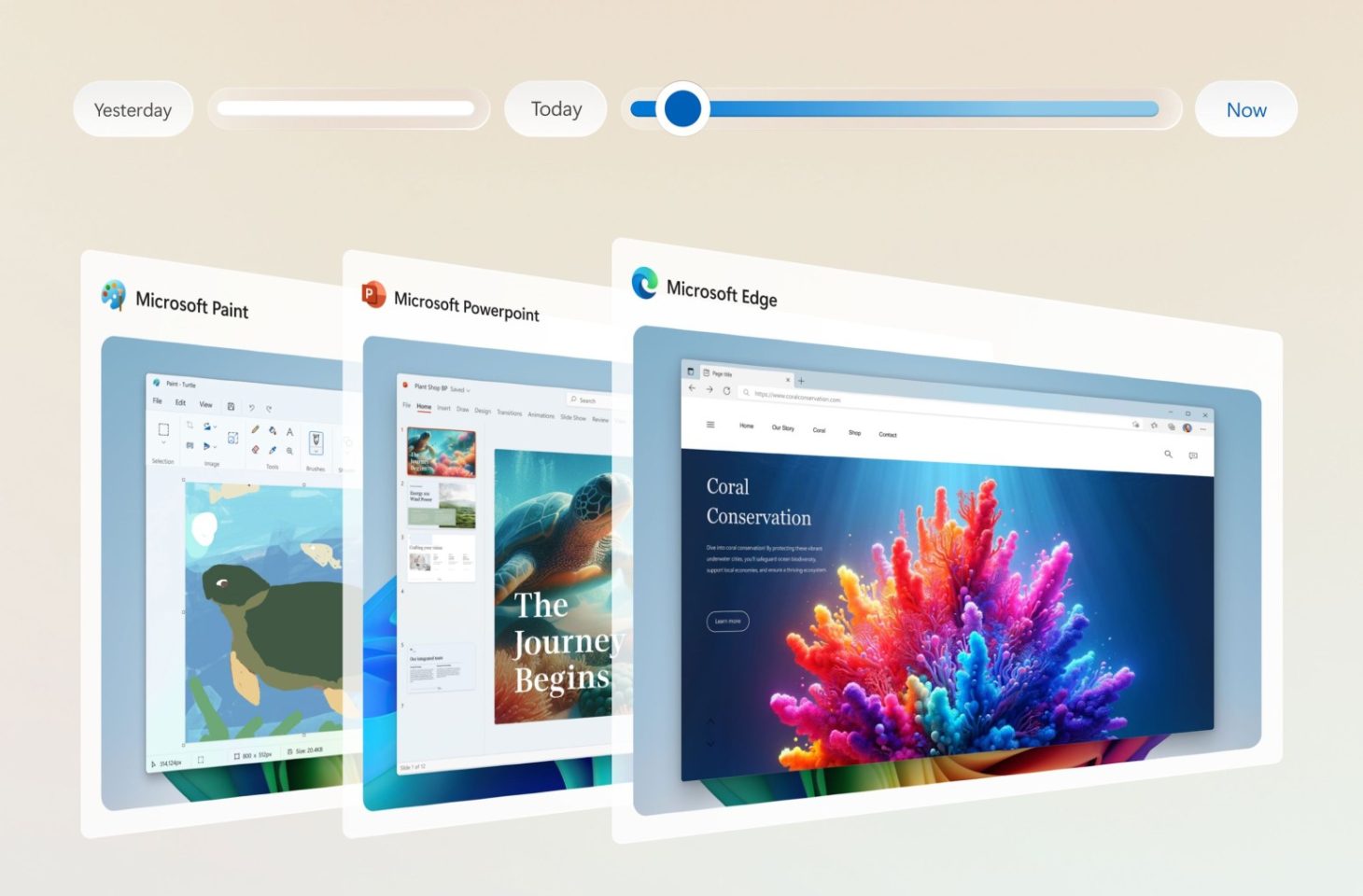Windows recall: A nightmare for your privacy?
- May 27, 2024
- 0
Windows 11 will soon track your every mouse click. Security and privacy experts are raising concerns about the newly announced recall feature. Microsoft announced Recall last week at
Windows 11 will soon track your every mouse click. Security and privacy experts are raising concerns about the newly announced recall feature. Microsoft announced Recall last week at

Windows 11 will soon track your every mouse click. Security and privacy experts are raising concerns about the newly announced recall feature.
Microsoft announced Recall last week at the Build developer conference. The feature literally takes you back in time. Recall uses AI to take screenshots of your PC screen at regular intervals and save them. In theory, nothing you do on your PC is lost. Recall includes a search function that lets you search specifically in your timeline.
The new Recall feature has caused mixed opinions. Security and privacy experts in particular have many doubts. The British data protection authority has already asked Microsoft how it intends to ensure user privacy. Windows Recall will be available from June on Copilot+ PCs equipped with Qualcomm’s new Snapdragon
Where do these privacy concerns about Recall come from? The feature can basically record anything. Recall takes a screen capture roughly every five seconds. Windows algorithms determine whether anything useful happens in those five seconds. Up to 150GB of storage is reserved for storing your activity, so Recall can go back in time up to about three months. This depends on the size of the internal storage: Recall is about a tenth.
Nothing will escape Recall’s eyes. Microsoft uses AI to make text readable in the screenshots. This allows you to clearly read search results for a specific query, for example, but your passwords or other sensitive information may still be readable.
The latter may sound like a reason not to want Recall. Of course, Microsoft takes some precautions. For example, all screenshots that Recall creates are stored locally on your PC and are therefore not available via the cloud or the Internet. Other users cannot access your account on a shared PC. Recall screenshots are encrypted with Device encryption or Bitlockerdepending on whether you have the Home or Pro version of Windows.
This security is certainly strong, but not completely watertight. Your PC contents can still be viewed remotely if you are logged into your Windows account in case an attacker breaks into your PC. In this case, your files will be automatically decrypted when opened.
While that’s a lot of ifs, there is a chance that your Recall screenshots could be wasted, so using Recall requires additional security measures to keep intruders out of your PC.
As a user, you have control over what Recall can and cannot record. You can turn Recall on and off through Settings. The feature is enabled by default in Windows 11. You can disable Recall entirely, or specify websites and applications that are not allowed to make recordings from. You can also limit the storage space allocated to Recall to 25GB, which tightens the timeline.
There is a catch here, too, which can be derived from Microsoft’s own manual for recall. Even websites and applications that you want to exclude can still be tracked. These are kept as temporary storage files and then deleted. If an intruder breaks into your PC at the right time, they can also get to the temporary screen recordings.
Are you planning to buy a Copilot+ PC soon? Then consider these potential security risks. Take your privacy into your own hands and check Recall’s settings thoroughly and don’t skimp on security. After all, your PC knows everything about you.
Source: IT Daily
As an experienced journalist and author, Mary has been reporting on the latest news and trends for over 5 years. With a passion for uncovering the stories behind the headlines, Mary has earned a reputation as a trusted voice in the world of journalism. Her writing style is insightful, engaging and thought-provoking, as she takes a deep dive into the most pressing issues of our time.